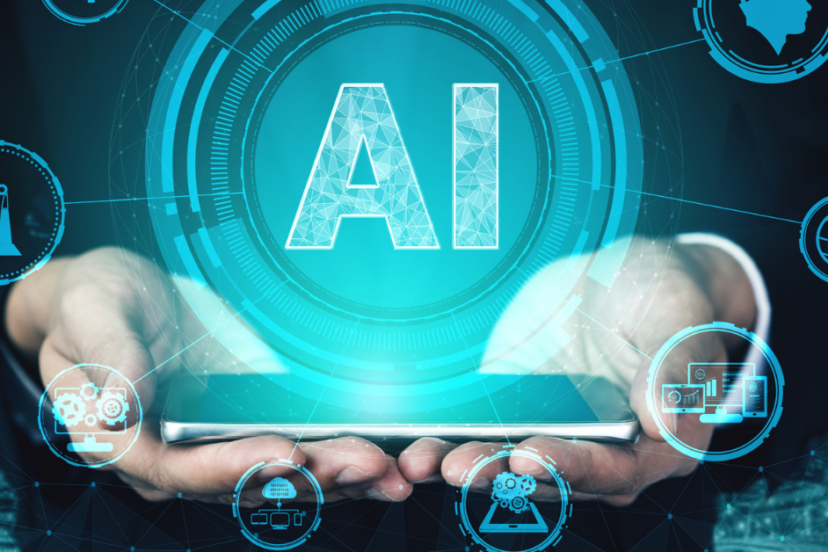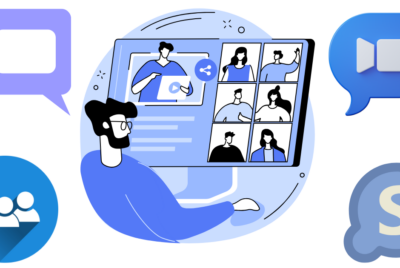AI Platforms and Frameworks: Unleashing the Power of Machine Learning and AI
AI Platforms and Frameworks are emerging as the backbone of transformative technologies. These powerful technologies are unlocking the promise of machine learning and artificial intelligence, helping enterprises worldwide to solve complex issues, optimize processes, and make better decisions.
TensorFlow, PyTorch, Microsoft Azure ML, and the Google Cloud AI Platform offer libraries, infrastructure, and tools to simplify AI model development and deployment. These platforms drive AI-driven innovation by simplifying data handling, model training, and deployment.
This article explores AI Platforms and Frameworks, their capabilities, their significance in AI development, and how they are unleashing machine learning and AI. Join us to discover these software solutions’ potential and importance to technology’s future.
Understanding AI Platforms and Frameworks
AI platforms enable the development, management, and optimization of AI applications. Data scientists, engineers, and researchers can construct AI models in connected workspaces. These systems support AI development, from data preprocessing to model training and deployment.
AI frameworks are the foundation of AI model development. They provide AI algorithm design and implementation functions in software libraries. These libraries simplify sophisticated machine learning models by providing elements for neural networks, natural language processing, and more.
Thus, AI platforms and frameworks are the cornerstones of AI and machine learning development. They streamline model development by offering many tools and functions. They encourage developers to experiment, optimize, and deploy models more efficiently. Whether it’s TensorFlow, PyTorch, Microsoft Azure ML, or Google Cloud AI Platform, these technologies completely alter the landscape of AI development and set off a technical revolution.
Why AI Platforms and Frameworks Matter
AI platforms and frameworks are integral to driving innovation and efficiency. Their significance in the field is substantial and matters for many reasons.
1. Streamlining the AI Development Process:
AI platforms and frameworks are designed to simplify the complex process of AI model development. They provide pre-built functions and tools that reduce the manual work, allowing developers to focus more on developing effective models and less on the intricate details of the coding.
2. Facilitating Collaboration:
AI platforms provide a shared, integrated environment where data scientists, developers, and engineers can collaborate. This environment fosters teamwork and knowledge sharing, speeding up the development process and improving the quality of the AI models created.
3. Enhancing Data Management:
AI model development requires dealing with large and complex datasets. AI platforms provide robust data preprocessing tools that clean, transform, and structure the data, making it ready for use in model training.
4. Scalability and Efficiency:
AI platforms offer the infrastructure for high-performance computing. This feature allows developers to train their models on a larger scale, significantly increasing the speed and efficiency of the process. It also provides scale and adaptation as the project evolves, ensuring the resources meet its demands.
5. Deployment and Integration:
AI platforms and frameworks ease the deployment of AI models, providing tools for integrating these models into existing systems or new applications. They also offer seamless integration with cloud services, opening up access to vast computational resources and simplifying the management and monitoring of AI applications.
6. Driving Innovation:
By simplifying and streamlining the development process, AI platforms and frameworks enable developers to push the boundaries of what is possible with AI. This environment nurtures creativity and innovation, leading to the development of advanced AI models that can solve complex problems.
Popular AI Platforms and Frameworks
TensorFlow
Initially developed by researchers from Google’s Machine Learning team, TensorFlow has evolved into one of the most versatile and popular open-source AI platforms. It provides a comprehensive, flexible ecosystem of tools, libraries, and community resources to build and deploy machine learning applications.
PyTorch
PyTorch, brought to life by Facebook’s AI Research lab, is known for its simplicity and ease of use. It’s a deep learning framework that provides maximum flexibility and speed during implementing and managing deep learning models.
Microsoft Azure ML
Microsoft Azure ML is a cloud-based, enterprise-grade machine learning service that enables users to build, train, and deploy machine learning models faster. It combines all the capabilities required for the complete machine-learning lifecycle.
Google Cloud AI Platform
The Google Cloud AI Platform is a unified AI platform that helps teams prepare, build, run, and manage machine learning projects. It offers end-to-end services that streamline the machine learning development process.
Comparing AI Platforms and Frameworks
Comparison Criteria
When comparing these platforms and frameworks, we should consider their usability, flexibility, support, community, and performance. It’s essential to consider your specific needs and what each platform can offer.
TensorFlow vs. PyTorch
TensorFlow stands out for its extensive tooling and strong community support. On the other hand, PyTorch shines in its simplicity and ease of use, especially for prototyping and research.
TensorFlow vs. Microsoft Azure ML
While TensorFlow offers more hands-on control and flexibility, Microsoft Azure ML provides a complete, integrated machine learning lifecycle solution. Azure ML could be a better option for those seeking a more comprehensive and managed approach.
TensorFlow vs. Google Cloud AI Platform
Both are Google products, yet they cater to different needs. While TensorFlow is more about providing a robust framework for machine learning, the Google Cloud AI Platform offers a complete end-to-end machine learning service.
PyTorch vs. Microsoft Azure ML
PyTorch’s dynamic computation graph and simple interface make it a researcher’s favorite. In contrast, Azure ML’s strength lies in its full-service cloud-based machine learning lifecycle management capabilities.
PyTorch vs. Google Cloud AI Platform
The Google Cloud AI Platform may appeal to those seeking a more streamlined, managed machine learning experience. At the same time, PyTorch may be the go-to for researchers and developers who value its flexibility and usability.
Microsoft Azure ML vs. Google Cloud AI Platform
These two cloud-based services offer similar features, but the choice may be cost, integration with existing systems, and personal preference.
Making the Right Choice for Your Needs
Your AI development project’s success depends on your AI platform or framework. Each project has different aspects to consider when making this crucial decision. Here are some key points to keep in mind while making your choice:
Project Requirements:
Evaluate the specifics of your project. Which platform or framework is appropriate for you may depend on the AI model’s complexity, the amount of the dataset, and the available computational resources.
Ease of Use:
User-friendliness is key, especially for those new to AI development. Some frameworks are more intuitive and have a shorter learning curve, making them more suitable for beginners.
Flexibility and Scalability:
Consider how flexible and scalable the platform or framework is. Does it allow for modifications and customizations? Can it handle the increase in data volume or model complexity as your project expands?
Community and Support:
A strong community and a good support system can be beneficial in troubleshooting and learning. Popular platforms and frameworks usually have large active communities and extensive documentation, making finding solutions to problems you may encounter easier.
Integration Capabilities:
Check how well the platform or framework integrates with other tools and services you plan to use. Seamlessly connecting with data sources, cloud services, or other software can significantly impact your development process.
Cost:
While many platforms and frameworks are open-source and free, there may be costs associated with using certain features or services, especially for cloud-based platforms. Keep your budget in mind when making your choice.
AI platforms and frameworks are not one-size-fits-all. It’s about matching your skills and needs. AI can help your project succeed with the correct tools.
Conclusion
As we conclude our study of AI platforms and frameworks, these strong tools have a major impact on AI and machine learning. They turn abstract ideas into practical solutions that boost innovation and efficiency across many industries.
As we’ve seen with TensorFlow, PyTorch, Microsoft Azure ML, and Google Cloud AI Platform, choosing a platform or framework can substantially impact your AI project. Consider your project requirements, the platform’s simplicity of use, flexibility, community support, integration possibilities, and pricing when choosing a tool.
It’s crucial to realize that AI-driven innovation is more than just technology. They empower people, businesses, and societies to solve complicated issues, make educated decisions, and create a future we never imagined.
FAQs
What are AI platforms and frameworks? AI platforms and frameworks are software solutions that provide a comprehensive set of tools, libraries, and infrastructure to develop and deploy AI models.
What is TensorFlow? Google’s open-source platform for developing and deploying machine learning applications. It features a rich, adaptable ecosystem of tools, libraries, and community resources.
How is PyTorch different from TensorFlow? PyTorch, developed by Facebook, is known for its simplicity and ease of use. It provides maximum flexibility and speed during implementing and managing deep learning models, while TensorFlow stands out for its extensive tooling and strong community support.
What is the significance of AI platforms and frameworks? The entire potential of AI and machine learning may be exploited with the help of AI platforms and frameworks, simplifying previously inaccessible ideas.
How do I choose the right AI platform or framework for my needs? Cost, scalability, community support, and the specifics of your project and team’s skill set and data can help you narrow down your possibilities.





Comments are closed.